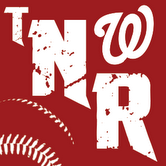Yesterday, the Nationals agreed to terms with pitcher Chien-Ming Wang. Glad to see Mike Rizzo is finally listening to me. Not to go too cheapy here, but I’ve already covered the basics with him. I mentioned his strong overall numbers:
From 2005-2008 he started 95 games, with a 3.79 ERA, 117 ERA+, and went 52-20 (albeit for a very good team). In 628 2/3 IP he only struck out 281, but since he only walked 178, he did well.
And his ability to induce grounders:
…GB/FB ratio according to fangraphs, his career number is 2.70 – very high… His ratios in 2005 and 2006 would have been enough to lead the majors if he had done it in 2009. In 2005 he ranked 4th in the majors, in 2006 he was 3rd, in 2007 and 2008 he ranked 6th.
Enough of the old copy, let’s dive a little deeper into those GB/FB ratios.
We around here tend to think of one John Edward Lannan when we think of groundball pitchers. After all, not only is he the best on the team at it, he’s been the best pitcher on the team. But compared to Wang, he’s a chump at this sort of thing:
That’s right, in Wang’s terrible injury-shortened 2009, he barely kept the ball on the ground less than Lannan did in his most successful year at it. Impressive no doubt. Of course, Lannan didn’t need all of that to be a good pitcher, he was successful without the gaudy GB/FB numbers.
But the bigger point remains. Wang keeps the ball on the ground, which makes it hard to get big hits off of him. He gave up 34 HRs in his career prior to his terrible 2009. From 2005-2008, batters hit .265/.320/.365 against him. An ISO of .100 is pretty darn impressive. It’s actually more than impressive. Here are a couple random samples of Career ISO against:
Wang (not including 2009) – .110 (.100)
Lincecum – .101
Webb – .109
Halladay – .120
Hernandez – .121
Sabathia – .131
Santana – .143
Carpenter – .144
This is a long way of saying that you can’t score quickly against Wang. There just isn’t that potential for a bloop and a blast compared to even the best pitchers in the game. His success doesn’t come from overpowering hitters. Rather, it comes from the necessity of these hitters to string together 3 hits to score a run, 5-6 hits to have a real big inning. That is why Wang has been so good, that is why he keeps his team in every game. It is because it is just too hard for most teams to get a half a dozen hits in a single inning. Even if they manage to do it once in a game, if they can’t do it a second time, they may only have 3 or 4 total runs despite feeling as if they got to the pitcher.
Of course, all this is dependent on Wang returning to his pre-injury form. There are questions about his release point and his arm slot and other things that a pitching coach may need to tackle. What’s nice about the contract ($2M base up to $5M with incentives) is that he is actually arbitration eligible at the end of the season. So if the Nats like what they see, they can keep him at least for 2011. Or more easily extend a contract than if he was a free agent. We’ll soon get a chance to see if he is the Chien-Ming Wang of old, or the one we’ve seen since his injury.
Finally, if you want to see my argument for why Wang’s reliance on defense won’t be nearly as deadly as the casual Nat’s observer may think, check out my comment at the bottom of this page.

